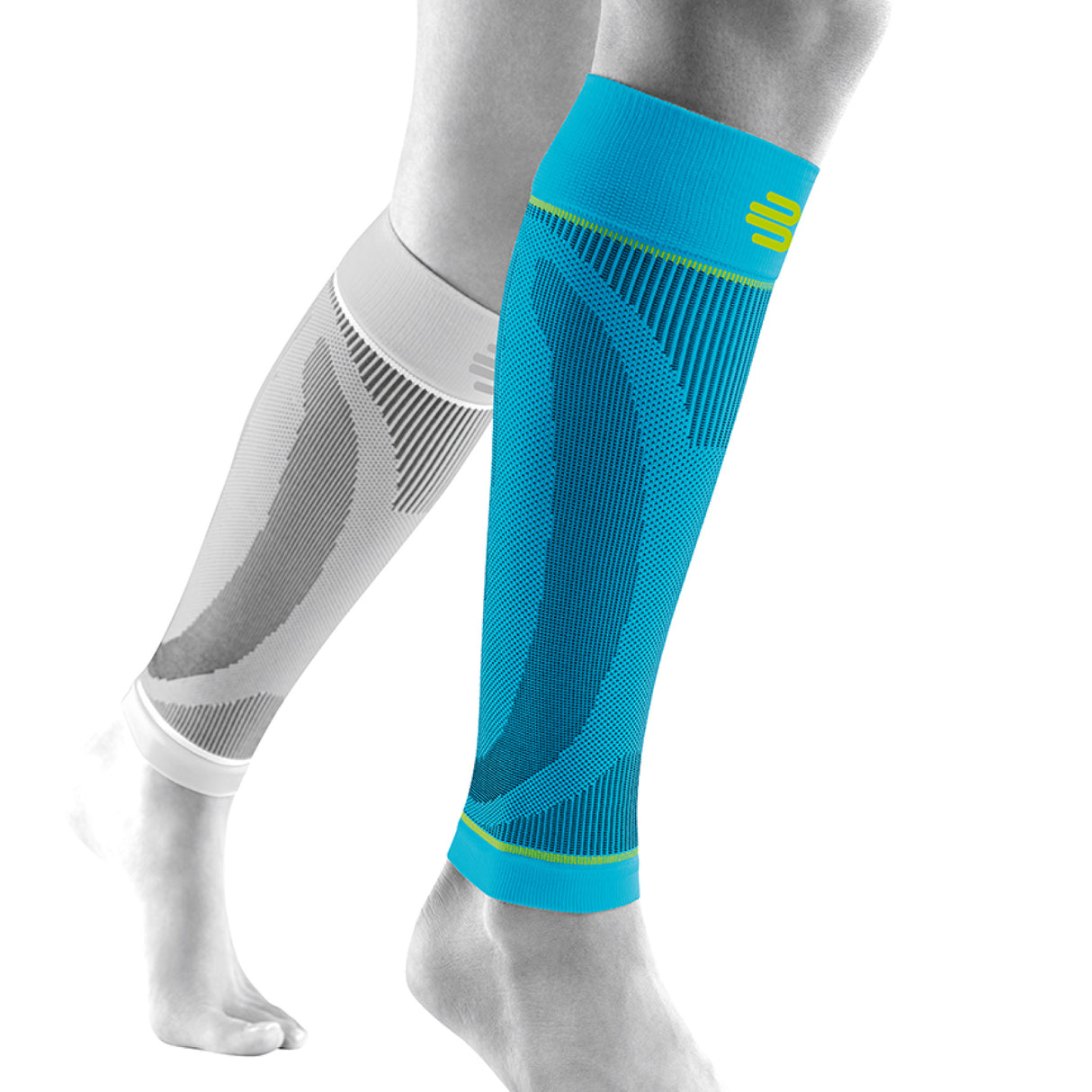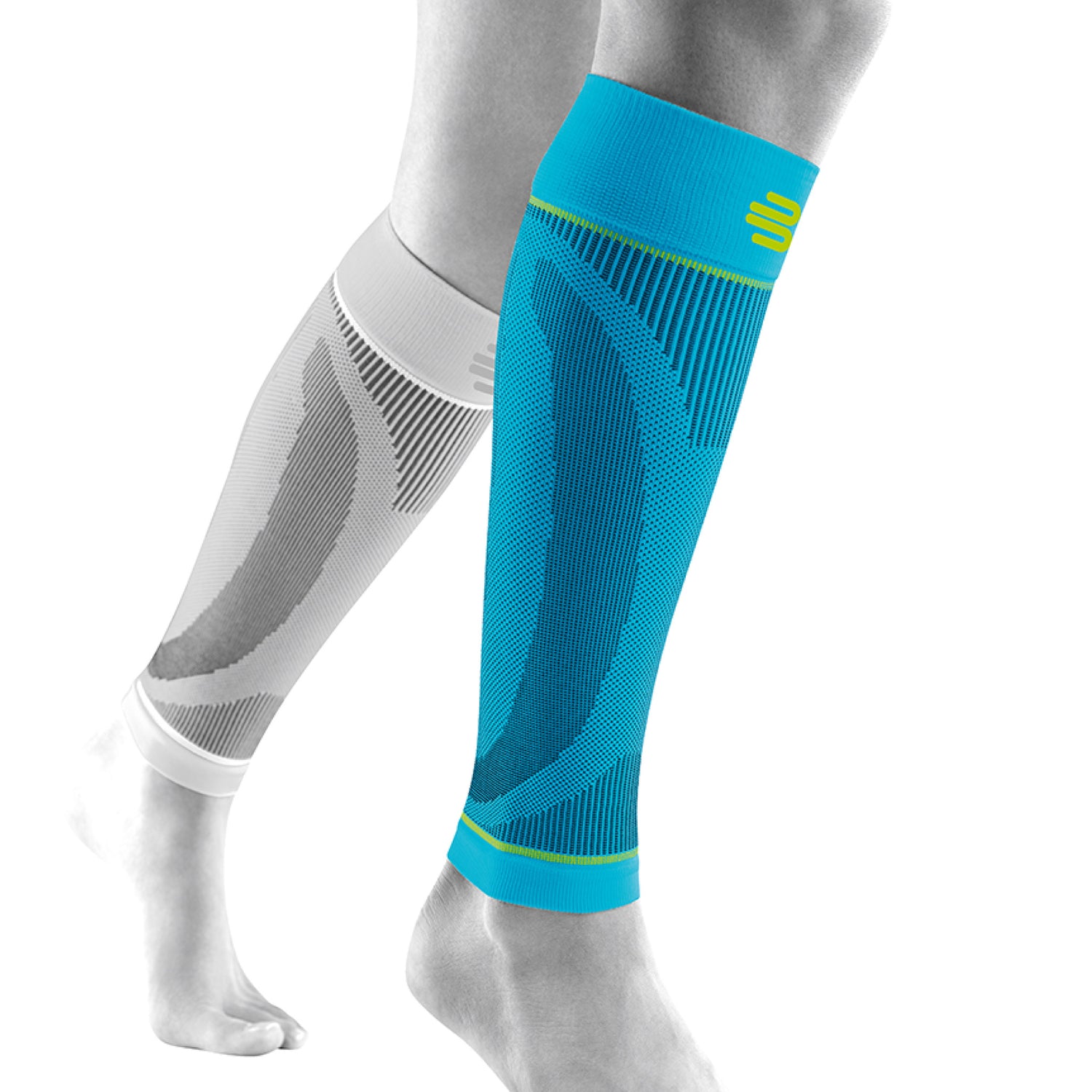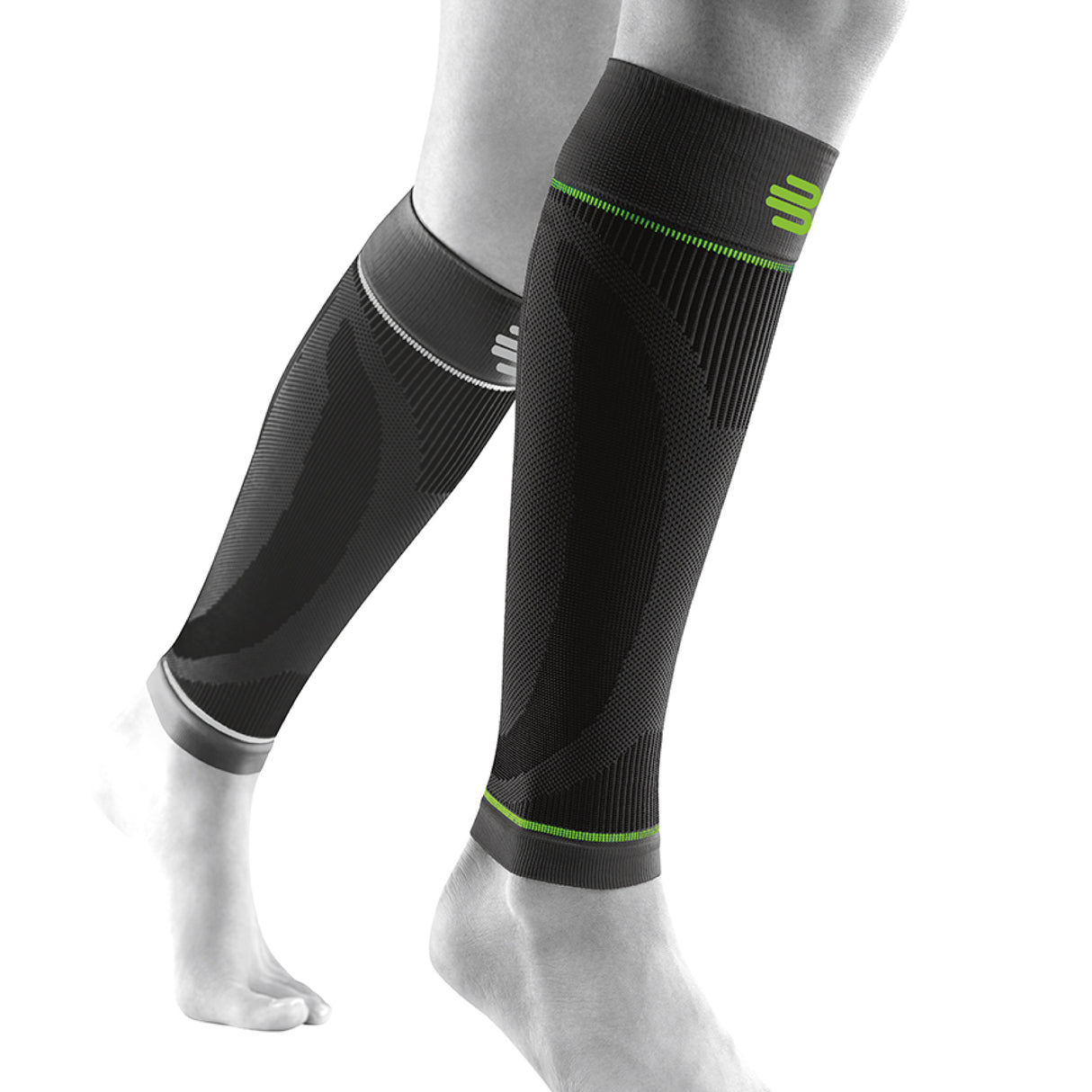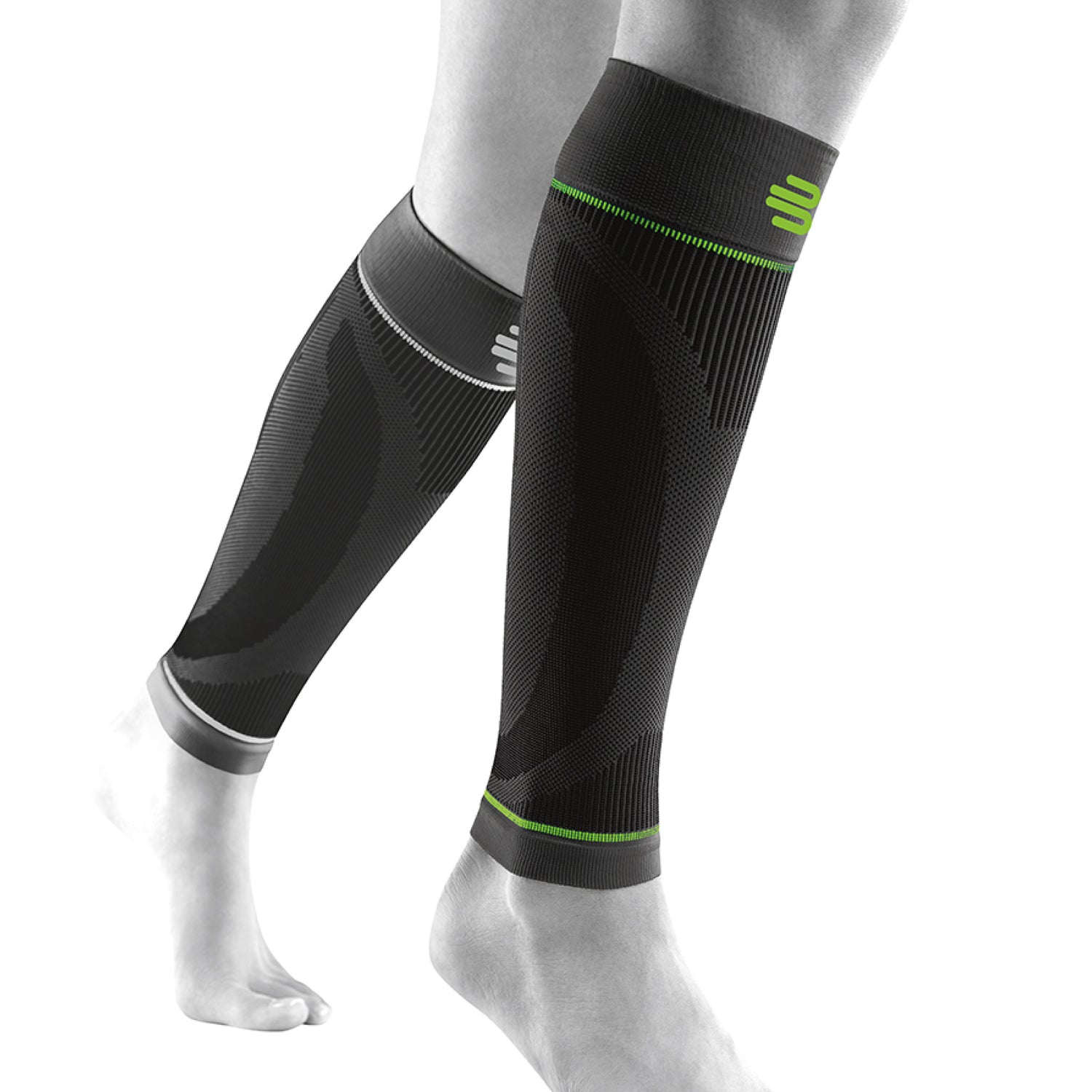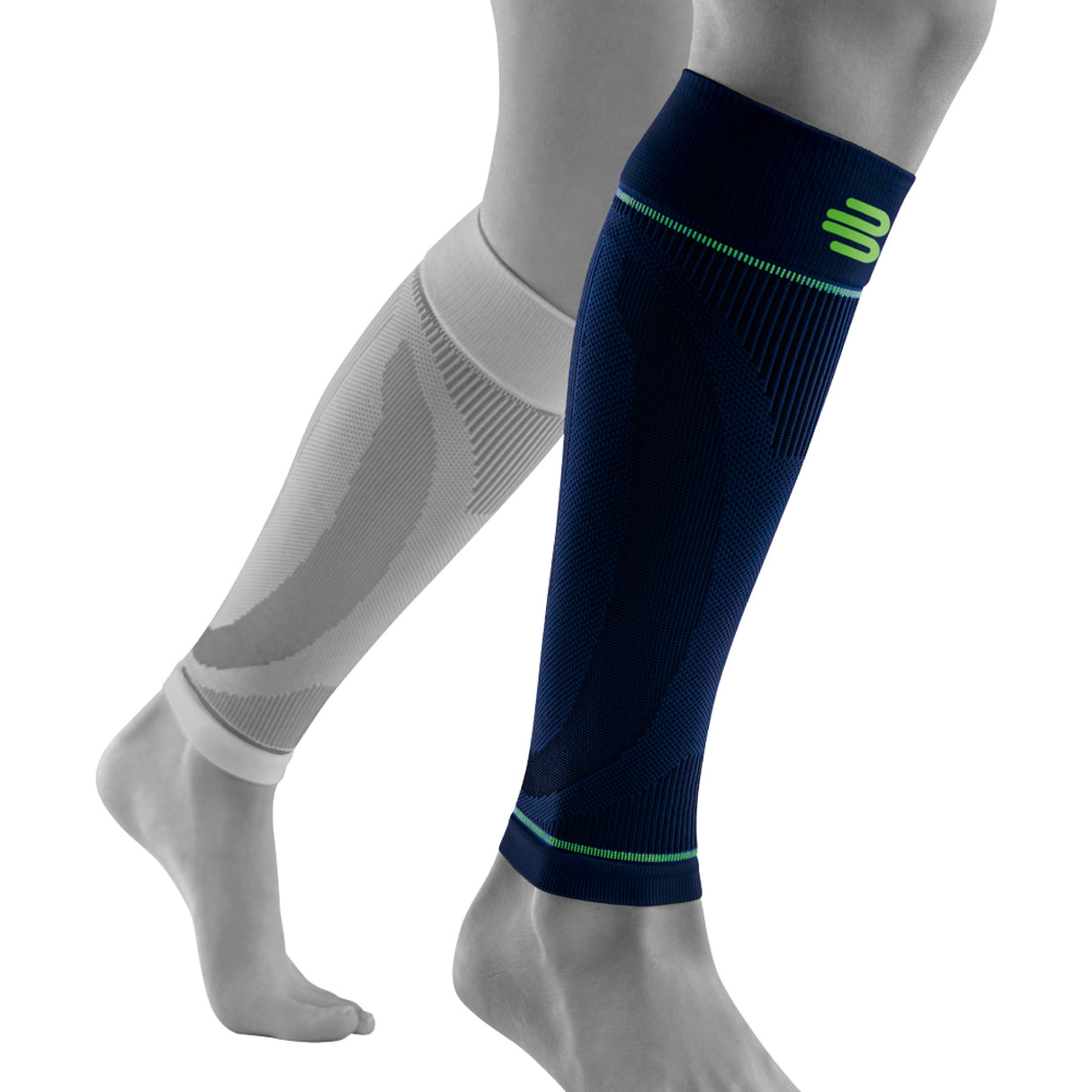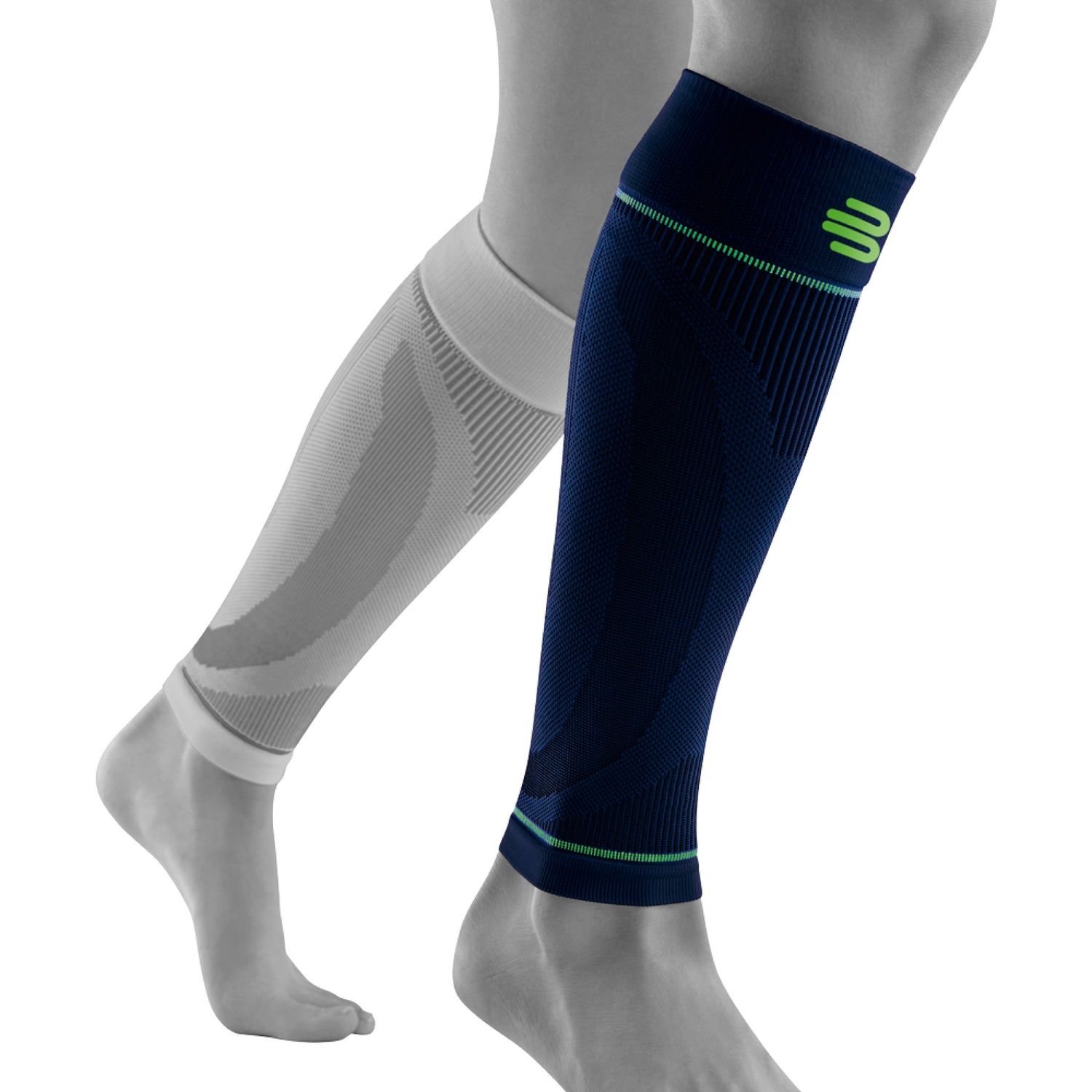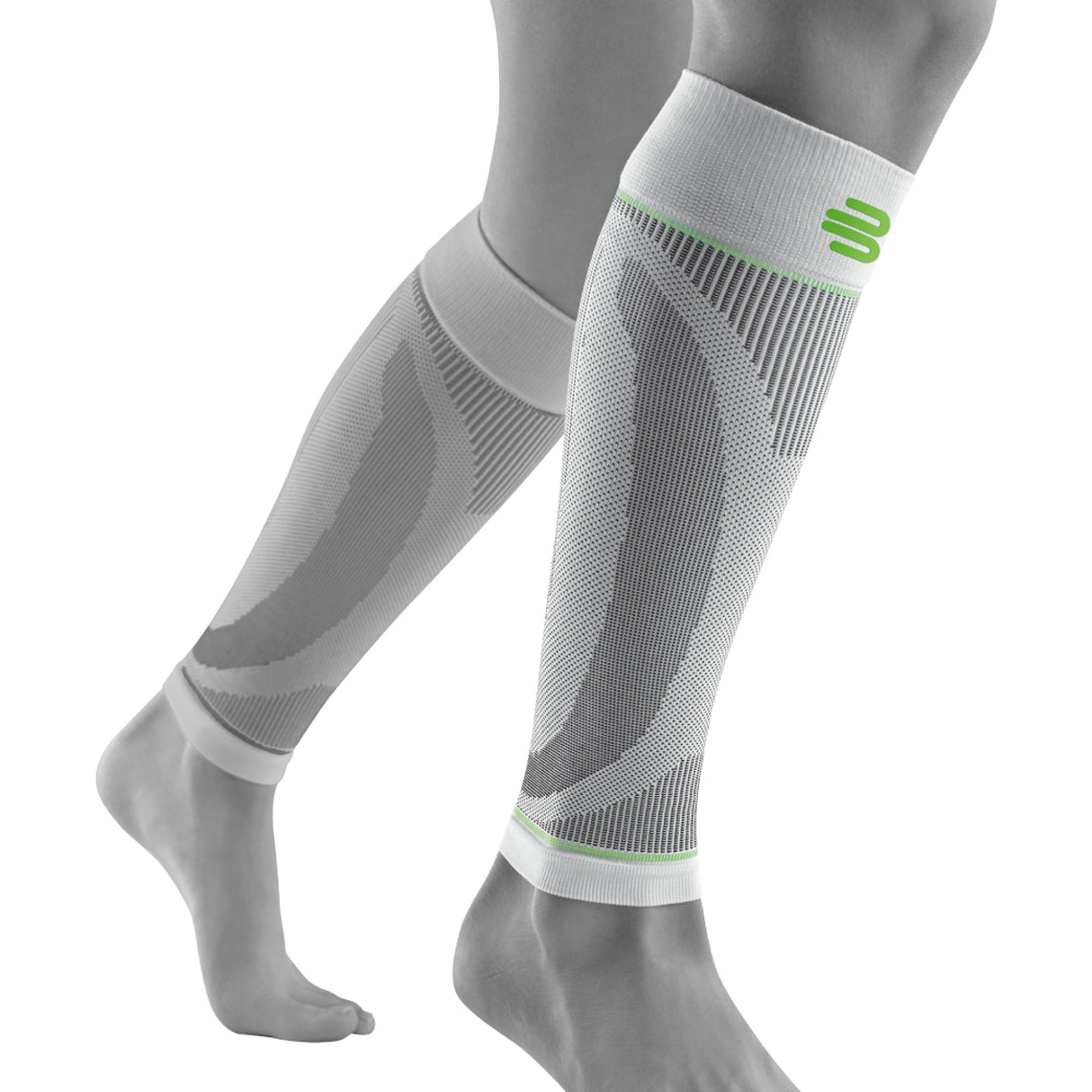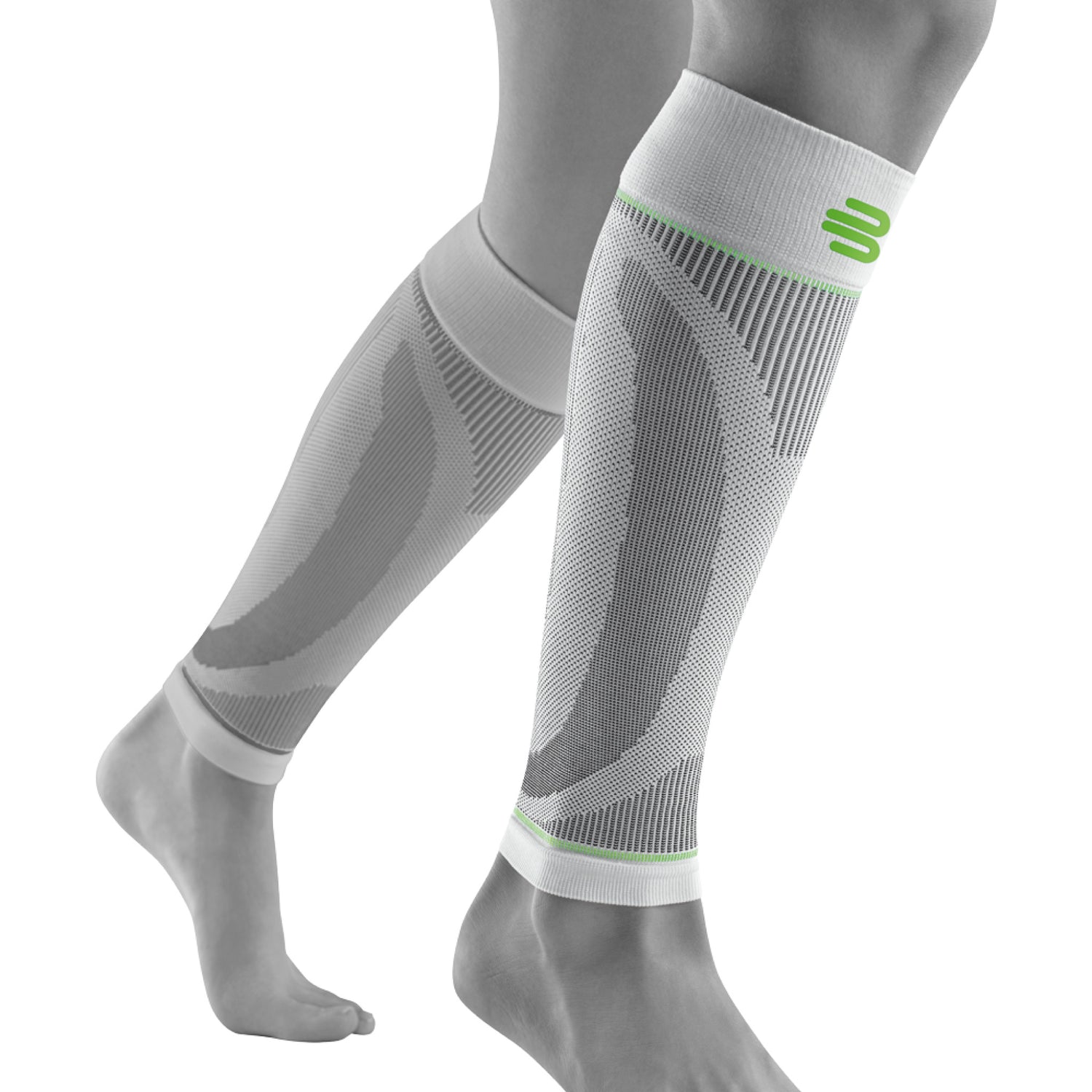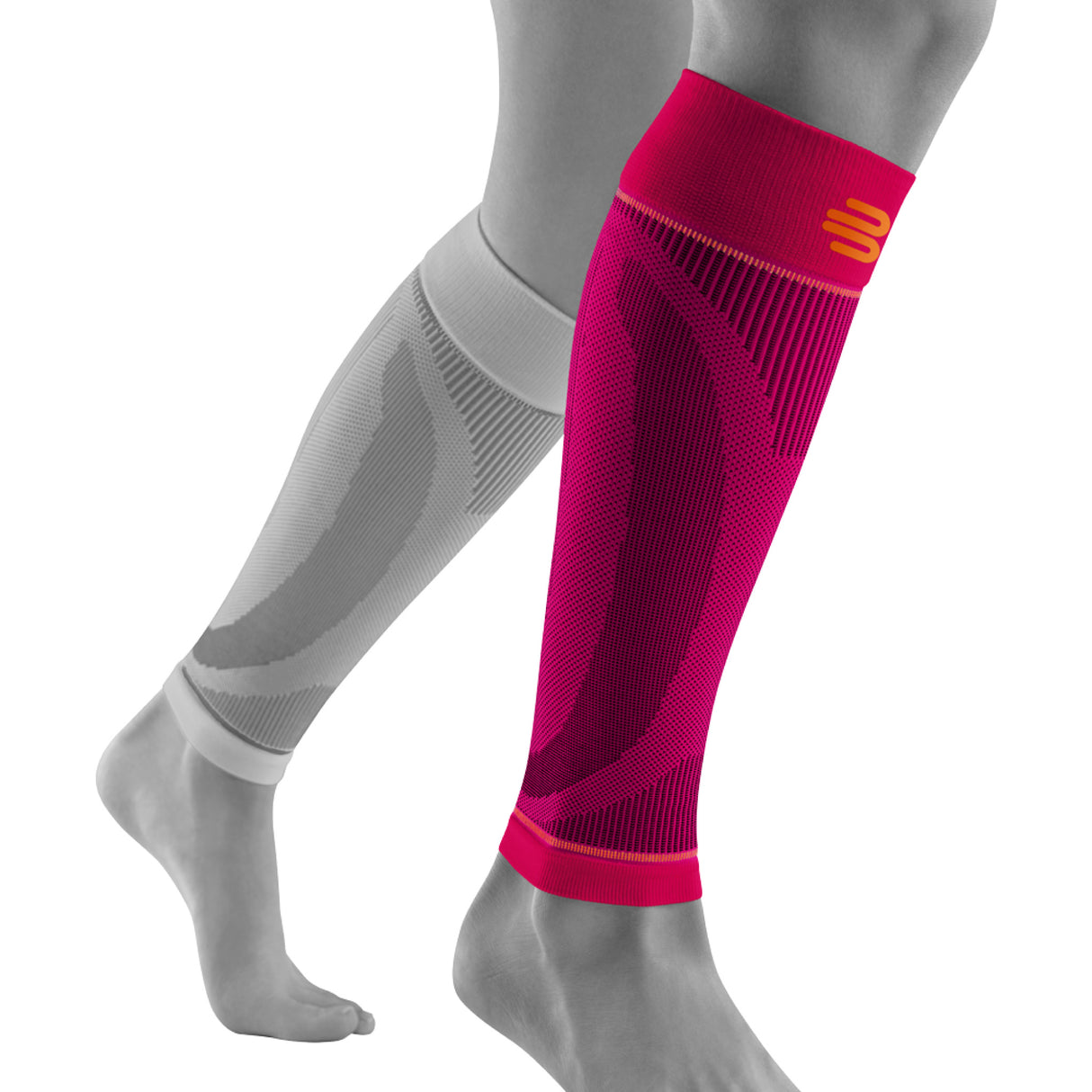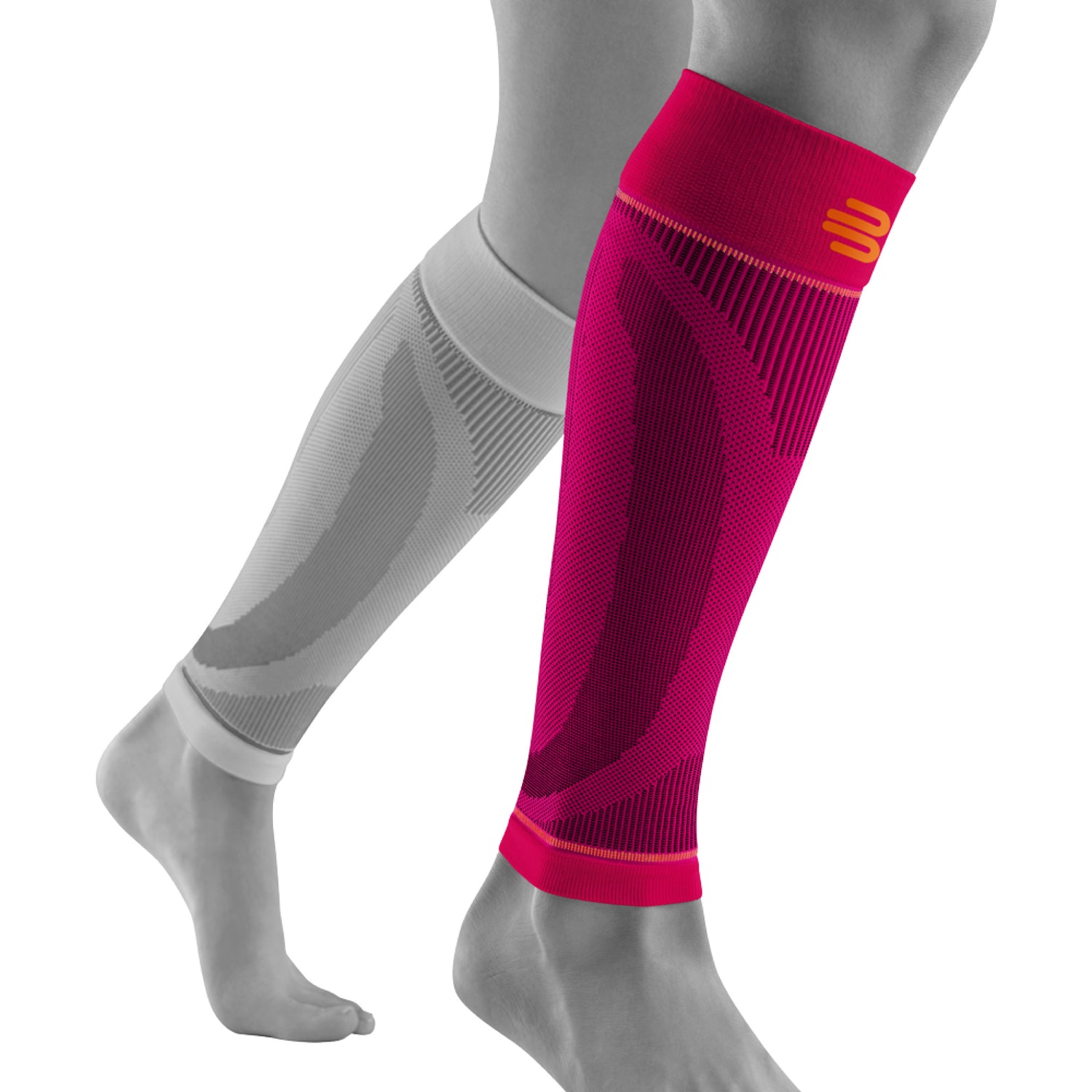Possible causes:
-
Muscle overload or microtrauma
– After intense exercise (e.g. running, walking, climbing stairs)
– Prolonged standing -
Muscle cramps
– Dehydration, electrolyte deficiency (magnesium, potassium, calcium)
– Excessive physical exertion or cold -
Circulatory disorders
– Varicose veins, chronic venous insufficiency
– Deep vein thrombosis (if the pain is sharp, sudden and accompanied by swelling) -
Nerve compression
– Lumbar spine problems (e.g. hernia, sciatic nerve compression) -
Improper footwear or posture
– Especially when walking or standing for long periods of time
Solutions (depending on the cause):
-
Rest and light stretching
– Helps with muscle overload or microtrauma -
Massage and compression clothing
– Promotes blood circulation, reduces swelling and pain
– For example, compression stockings or calf sleeves -
Sports compression for calves
– Reduces muscle vibration during exercise
– Promotes faster recovery after training or competition
– Helps prevent cramps and muscle stiffness
– Recommended for running, cycling, hiking and everyday activities
-
Adequate fluid and electrolyte intake
– Eat bananas, drink water, and consider magnesium supplements -
Cold or warm compresses
– Cold reduces inflammation; heat relaxes tense muscles -
Proper footwear and orthopedic insoles
– Important for people who walk or stand a lot -
Visit a doctor if:
– The pain is constant, swelling or redness appears rapidly
– Suspected vein or nerve problems
*This article is for informational purposes only and is not a substitute for medical advice. If your leg swelling persists or worsens, it is essential to see a doctor to determine the exact cause and receive appropriate treatment.



